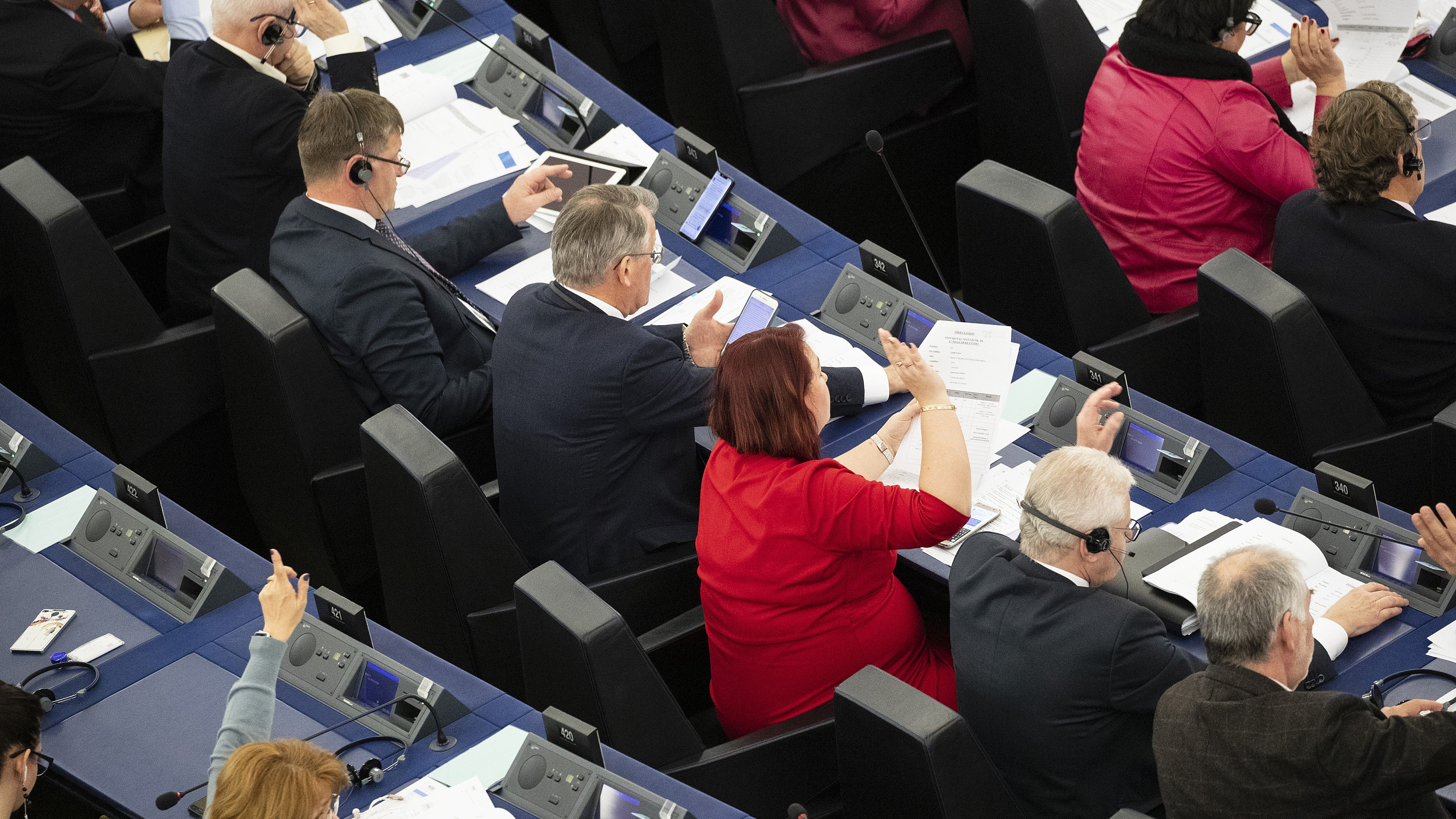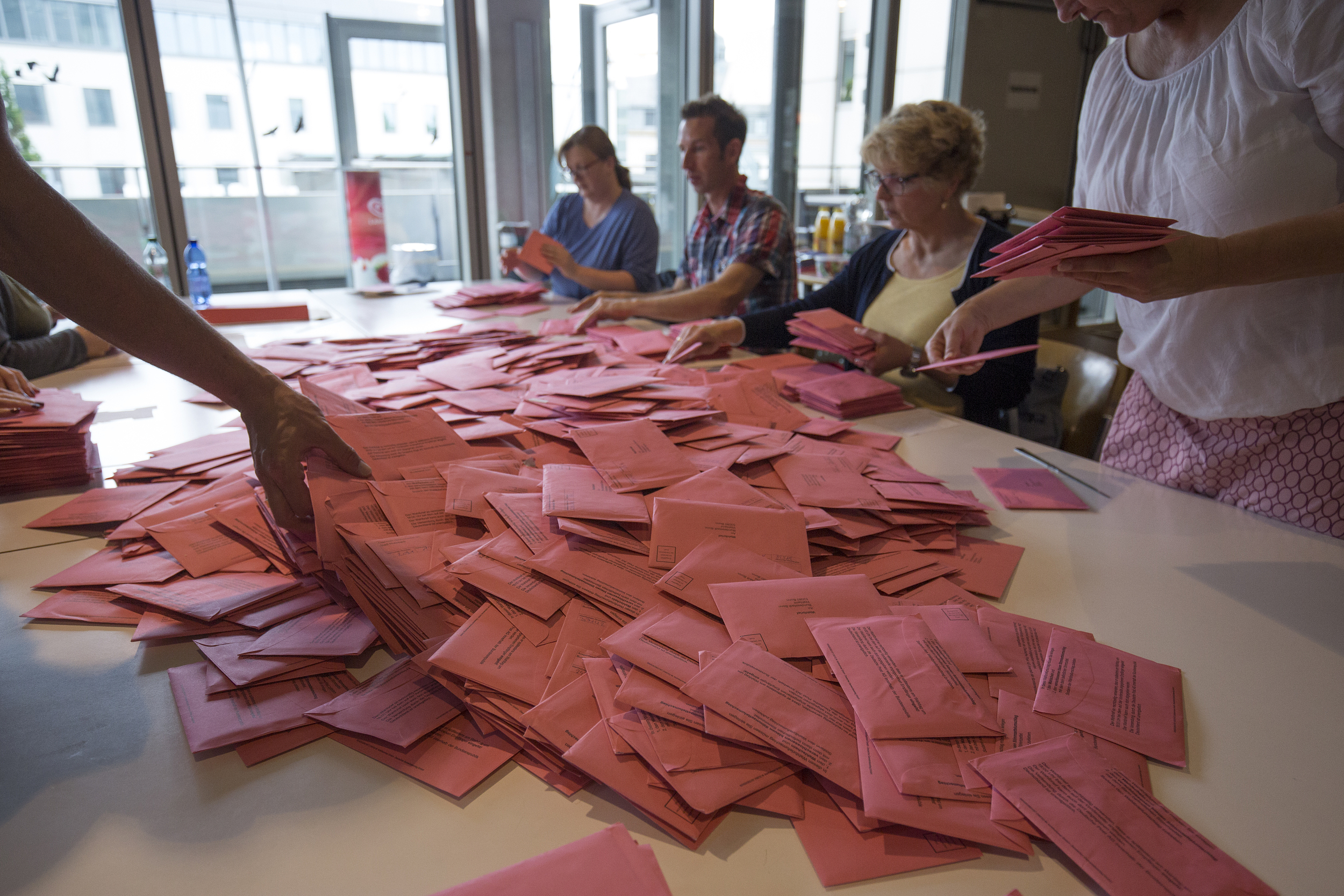

Members of the European Parliament (MEPs) raise their hands to vote during a session at the European Parliament in Strasbourg, France, March 12, 2019. /VCG Photo
The new European Parliament (EP) is convening for the first time on Tuesday in Strasbourg, France, following elections in May. The parliament is the only body in the European Union to be directly elected, and its 751 deputies (MEPs) come from all 28 members of the bloc – including the UK until Brexit is finalized.
But how representative is the new parliament?
Bigger country = bigger influence?
Seats are distributed between countries according to proportionality, with the largest countries by population getting a bigger number of deputies and smaller members having fewer.
As such, the parliament is overwhelmingly populated by MEPs from Germany (96 seats), France (74), the UK (73), Italy (73), Spain (54) and Poland (51).
The bloc's smallest members – Cyprus, Estonia, Malta and Luxembourg – have just six seats each.
However, voters in medium and smaller countries might carry more weight as individuals than their counterparts in Germany or France.
Despite making up 70.5 percent of the EU's 513 million-strong population, the top six countries hold just 56 percent of the seats.
A strictly proportional system would give Malta and Luxembourg, whose population is just 0.1 percent that of the EU total, one deputy each, while Germany would have 122.

A screen shows early election results for the European Parliament elections at the EP General Assembly Hall in Brussels, Belgium, May 26, 2019. /VCG Photo
Far from 50/50
More women than ever before were elected to the European Parliament this year: female MEPs are expected to take about 39 percent of seats, according to a recent study. This amounts to 292 seats.
According to the European statistics office Eurostat however, the average gender ratio in the EU-28 is 104 women for every 100 men, meaning the new parliament should have 384 female MEPs for 367 male MEPs to be truly representative of the population.
Older than average
When it comes to age, statistics on MEPs will never exactly match the wider population, given that candidates must be at least 18-25 years old to run for the European Parliament. A breakdown of figures is also unavailable for the new class of MEPs.
The median age of European deputies in the outgoing class, however, was 55 years old – far higher than the European average of about 43 years old.
And despite a quarter of the EU population being under 24, there was no MEP younger than 28. The oldest, meanwhile, was 90.
Mostly white
Where EU observers have noted the biggest discrepancy, however, is in the relatively small number of non-white MEPs who sit in Brussels and Strasbourg.
The European Network Against Racism (ENAR) estimated that people with racial or ethnic minority backgrounds won just five percent of seats on May 23-26, despite making up about 10 percent of the EU's population or about 50 million people.

Election officers help sort and open postal votes for the 2019 European election in Bonn, Germany, May 26, 2019. /VCG Photo
More specifically, 30 of the new MEPs are people of color – with African, South Asian or Middle Eastern backgrounds – and another six are national minorities, such as Hungarians in Romania or Russians in Lithuania.
Out of 28 member states, only 13 elected a deputy with a racial or ethnic minority background, ENAR noted.
This was nevertheless a big increase from the last class of MEPs, which included just 18 people of color.
Reflecting society
Deputies do not need to be exactly like their voters to make suitable policy.
However, European voters often complain that Brussels is too far removed from them and does not properly represent their interests.
"Our leadership should reflect who we are in Europe; what people underestimate is the potential for change that comes from gender equality, for men as well as for women," EU Commissioner for Competition Margrethe Vestager told The Parliament Magazine recently.
"It's a real shame that even in this day and age we find ourselves in a situation where so many of our institutions – both at a national and European level – simply do not reflect the societies that they choose to represent," Sajjad Karim, a British MEP in the outgoing parliament, also deplored, speaking to Euronews after the election.
"Whilst that remains the case, there is always going to be a deficit in our democracy.”
It might be a while before the European Parliament truly reflects the European Union's diverse background.

Copyright © 2018 CGTN. Beijing ICP prepared NO.16065310-3
Copyright © 2018 CGTN. Beijing ICP prepared NO.16065310-3